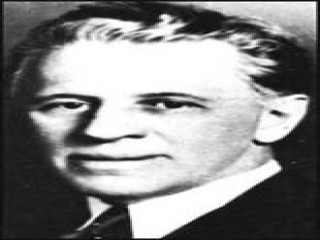
George Creel biography
Date of birth : 1876-12-01
Date of death : 1953-10-03
Birthplace : Lafayette County, Missouri
Nationality : American
Category : Famous Figures
Last modified : 2011-05-20
Credited as : Writer and journalist, ,
George Creel, American writer and journalist, was the first propaganda minister in American history.
George Creel was born on Dec. 1, 1876, on a farm in Lafayette County, Mo. His father, Henry Clay Creel, was a former Confederate officer. George spent his boyhood in Missouri, where he attended what public schools were available.
Creel's real education began at 20, when he secured a job as a reporter on the Kansas City World. In 1899 he became editor of the Kansas City Independent. After joining the Progressive wing of the Democratic party, he enjoyed considerable influence in Missouri politics. In 1909 he moved to Denver, Colo., where he edited the Denver Post (1909-1911) and the Rocky Mountain News (1911-1913). His pamphlets for the Democratic National Committee in 1916 brought him to the attention of President Woodrow Wilson, who named Creel chairman of the Committee on Public Information at the outbreak of World War I.
Creel directed the flow of government propaganda on the war and faced, for the first time in the 20th century, the issues of censorship, news manipulation, and the public's "right to know," so important to the freedom of the press in a democratic society. His task was to convince a divided country of the wisdom of Wilson's decision to join the war against Germany. Creel established a system of voluntary press censorship. He refused to distribute information on most of the cruder Allied atrocity stories; instead he blanketed the nation with official information which portrayed the United States as crusading for freedom and democracy to save European civilization from Germany's brutish despoliation. Private American organizations such as the National Security League and the American Protective Association were far less careful in their publications than the Creel committee. Whoever was at fault, the result was an outbreak of war madness unparalleled in American history.
Creel always insisted that private groups rather than the Committee on Public Information were responsible for the wartime hysteria. In three books, How We Advertised America (1920), The War, the World and Wilson (1920), and his autobiography, Rebel at Large (1947), he defended his committee. But he never fully escaped the cloud that World War I cast over his name.
In 1920 Creel retired to private life. In the 1930s he helped moderate Democrats defeat Upton Sinclair's abortive EPIC (End Poverty in California) campaign in California. Creel remained active as a writer, newsman, and national commentator until his death on Oct. 3, 1953.
















